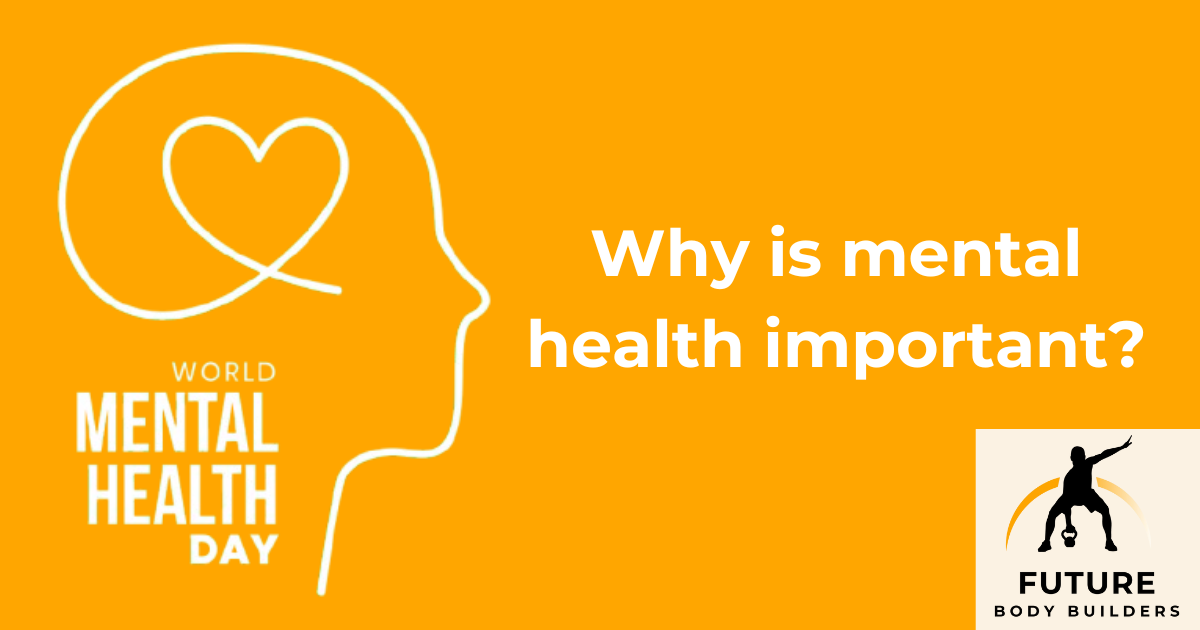Why is Mental Health Important in 2024?


Mental health is one of the most vital aspects of overall well-being. It impacts how we think, feel, and handle stress. Unfortunately, it’s often overlooked. We tend to focus more on physical health, but mental health is just as important. In fact, it’s interconnected with physical health in many ways. So, why is mental health important, and how does it shape our everyday lives?
Mental health, according to the World Health Organization (WHO), is the state of mental well-being. It supports our ability to make informed decisions, build meaningful relationships, and shape the world around us. Importantly, mental health is a fundamental human right, essential for personal growth, community health, and socio-economic development.
It’s important to note that mental well-being is not simply the absence of mental disorders. Instead, it exists on a complex continuum that varies from person to person. We all experience this state differently, with distinct levels of difficulty and distress. The outcomes may also differ, both socially and clinically.
Conditions related to mental well-being cover several experiences. These include recognized mental disorders like depression and anxiety, as well as psychosocial disabilities and other states tied to significant stress. These conditions often cause difficulty in everyday functioning, emotional distress, and sometimes pose a risk of self-harm. While individuals with these conditions often face lower levels of well-being, this is not always the case. Each person’s experience is unique, and many people with such challenges still function well and lead fulfilling lives.
Mental well-being impacts every aspect of our lives. It shapes our thoughts, emotions, and behaviors. When our mental state is strong, we feel more resilient, capable, and ready to face life’s challenges. Conversely, poor emotional health leads to numerous difficulties.
Here’s how mental well-being affects us:
There are many strategies to improve mental health, all of which contribute to a healthier, happier mindset. Some of the most practical strategies include:
A positive outlook is essential for mental well-being. Staying positive doesn’t mean ignoring negative emotions, but finding a balance between the two. Negative emotions, like sadness or anger, are natural and necessary for processing difficult situations. They often help us respond effectively to problems. However, it’s important not to let them dominate our thoughts. For example, dwelling on past events or worrying too much about the future can be harmful. Instead, focus on maintaining a positive mindset when possible. Hold on to positive emotions when they come and use them to combat negative thinking.
Gratitude is an essential tool for mental health improvement. Being thankful for the good things in your life, big or small, can shift your mindset. Practicing gratitude daily, whether by reflecting on what you’re thankful for or journaling about it, helps you see your life from a more positive perspective. This may include appreciating major sources of support or even small joys, like a delicious meal. By acknowledging these moments, you train your mind to recognize positive experiences, even in times of stress.
Regular exercise reduces stress, anxiety, and depression, while also boosting mood and energy levels. Getting enough sleep is equally important, as poor sleep can lead to irritability, anger, and an increased risk of mental health issues like depression. In addition, eating a healthy diet has a direct impact on mental health. A well-balanced diet not only improves physical well-being but also reduces stress and anxiety. Deficiencies in essential nutrients, like vitamin B12, can contribute to mental health problems, such as depression. By consuming nutrient-rich foods, you provide your body and mind with the necessary fuel to function optimally.
Healthy relationships play a big role in maintaining mental health. A support system of family and friends can protect you from the negative effects of stress. However, connecting with others goes beyond personal relationships. Getting involved in your community or neighborhood through volunteering or joining a group that aligns with your interests also creates a sense of belonging and purpose. These connections provide emotional support and opportunities for meaningful social interaction.
Learning new skills can improve your mental well-being by enhancing self-confidence, raising self-esteem, and helping you find purpose. It also allows you to connect with others. Even if time seems limited or learning something new doesn’t feel necessary, there are plenty of ways to incorporate learning into your life. For instance, you could try cooking a new recipe that promotes a balanced diet, or take on additional responsibilities at work, like mentoring a colleague or refining your presentation skills. You might enjoy working on a DIY project, like fixing a bike or repairing something around the house, with the help of online tutorials. You could also enroll in a local course to learn a new language or practical skills like plumbing. Hobbies that challenge you, such as writing, sports, or painting, can also be fulfilling.
Mental health is crucial for our overall well-being, impacting how we think, feel, and interact with the world. It influences our emotional state, physical health, relationships, work, and decision-making. To improve your mental health, focus on maintaining a positive outlook, practicing gratitude, taking care of your physical health, connecting with others, and learning new skills. Take the first step towards better mental and physical health with a personalized plan designed just for you.